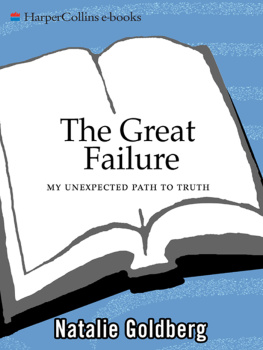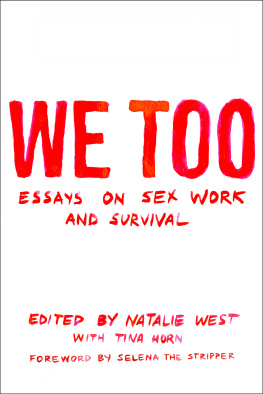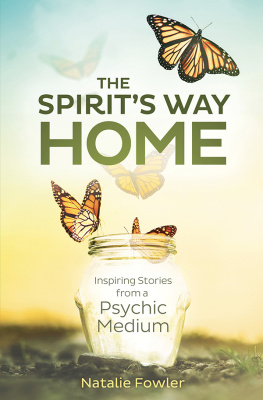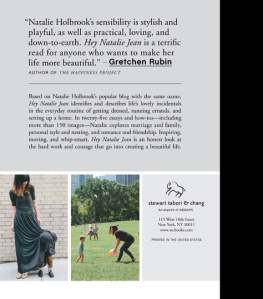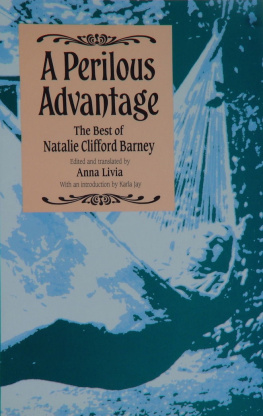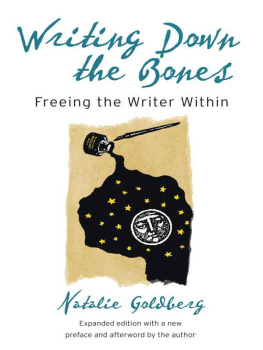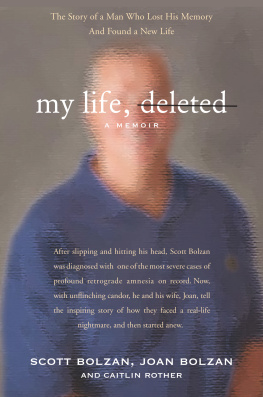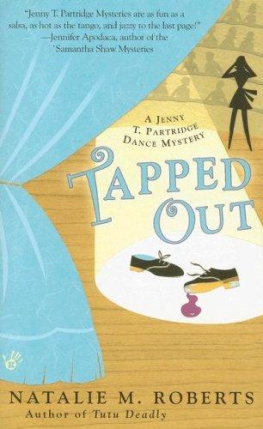
First published 2007 by Allen & Unwin
Published 2020 by Routledge
2 Park Square, Milton Park, Abingdon, Oxon OX14 4RN
605 Third Avenue, New York, NY 10017
Routledge is an imprint of the Taylor & Francis Group, an informa business
Copyright Fran Gale, Natalie Bolzan and Dorothy McRae-McMahon 2007
Copyright in the articles rests with the individual writers
All rights reserved. No part of this book may be reprinted or reproduced or utilised in any form or by any electronic, mechanical, or other means, now known or hereafter invented, including photocopying and recording, or in any information storage or retrieval system, without permission in writing from the publishers.
Notice:
Product or corporate names may be trademarks or registered trademarks, and are used only for identification and explanation without intent to infringe.
National Library of Australia
Cataloguing-in-Publication entry:
Spirited practices : spirituality and the helping
professions.
Includes index.
ISBN 9781741750614 (pbk.).
1. Counseling - Religious aspects. 2. Counseling
psychology. I. McRae-McMahon, Dorothy, 1934- . II.
Bolzan, Natalie. III. Gale, Fran.
158.3
Set in 11/14 pt ACaslon Regular by Midland Typesetters, Australia
ISBN-13: 9781741750614 (pbk)
To the spirit of those who have inspired us
Olive Collett, Amy Bolzan, Sophie North, Julian of Norwich, and for all who work to bring spirituality into their helping practice
Foreword
Spirituality and religion are among those phenomena that can be observed in all human cultures and throughout human history. Yet in the helping professions, whose shared objective is to promote human wellbeing, questions of spirituality and religion have so often been avoided. As many of the chapters in this volume note, the reasons for this can vary but most usually follow from two particular factors.
First, the very idea of a profession as we now understand it is a product of modernisation. The contemporary professions have developed within the historical processes of industrialisation, at the core of which lies a materialistic view of the world. This in turn has been a significant element in the secularisation of modern society. So, associated with this trend the idea of spirituality was either rendered illegitimate or at least confined to being a type of anthropological curiosity. The particular view of science that has predominated through this period has marginalised the spiritual, even, at times, denying the very idea. Some critical social and political analyses had the same impact, by equating all spiritual and religious experience and practices with particular oppressive historical forms.
Second, ethical practice in the helping professions is conscious of the power that the professional may exercise over the person seeking help. In seeking to avoid the imposition of the professionals own beliefs and values within the helping relationship, it became a matter of routine to avoid spiritual or religious matters. This tendency is also exacerbated by a lack of clarity between spirituality and religion. Especially for those who would wish to assert a materialist view of the world, or at least of their professional practice, the solution was to place the spiritual outside the sphere of interest of the helping professions.
Yet spirituality and religion continue to be crucially important aspects of life for so many helping professionals as well as for those who seek their help. One of the more interesting developments of recent times has been the re-emergence of attention to these phenomena, placing them back within the sphere of questions that may be raised publicly. Behind this shift we can see changes also among other branches of human inquiry, such as science and politics. For example, the assumption that has marked the last century, that science opposes belief, is being challenged increasingly and it is also becoming more plausible for politicians from all sides to express spiritual and religious ideas as the basis for their views. The sense that science and spirituality constitute a binary choice is being rethought in ways that make it possible for helping professionals to think critically and to be open to spirituality at the same time. It may well not be coincidental that the return to a more overt recognition of matters of spirituality and religion is happening at the same time that we also see a great increase of public interest in ethics, ecology and other challenges to crudely acquisitive materialism. For the helping professions a more conscious response to the spiritual and the religious in the lives of both professionals and service users makes visible something that has been covered over and gives a voice to a part of life about which we have been silent for so long.
The very diversity of this collection is its strength. This book brings together a wide range of practitioners and teachers in the helping professions. There are many different styles of thinking and writing: some parts are speculative and others are didactic. It is multi-professional, with contributions across education, medicine, nursing, psychology, religious ministry and social work. It is multi-faith, including Aboriginal spirituality, Buddhism, Christianity, Islam, Judaism and Wicca. This diversity is its strength because it models a concept that lies at the heart of the various contributions, namely that we learn and grow through careful and open reflection and listening. It invites us to look honestly at ourselves and our own practices through learning about those from other professional and faith backgrounds. In that way it encourages anyone in a helping profession to think further about spirituality in practice.
Richard Hugman
Professor of Social Work, University of New South Wales
January 2007
Contents
Fran Gale
Veronica Brady
Weis Schuiringa
Lyn Bender
Dorothy McRae-McMahon
Shanti Raman
Esm Holmes and Hilary Byrne-Armstrong
Joseph Daniel Toltz
Michael Dudley (with acknowledgments to Dorothy McRae-McMahon)
Nooria Mehraby
Margaret Crompton
Giles Barton
Karen Wilcox
Darri Adamson
Hanan Dover
Yvonne Orley
Diana Coholic
Julie Foster Smith and Hilary Byrne-Armstrong
Elizabeth Benson-Stott (with the kind assistance of James Stott)
Subhana Barzaghi and Gillian Coote
Douglas Ezzy
Dorothy McRae-McMahon
Lorraine Rose
Michael Wearing
Mark Carroll
Joanna Macy
Natalie Bolzan and Fran Gale
Guide
Questions of spirituality and helping practice have been of interest to us over many years, but it was the influence and questioning of our students which resulted in this work. We would like to acknowledge our students contribution to this books existence and thank the many people, family, friends and colleagues who over the years have in diverse ways shaped its content.
We are deeply indebted to Karen Wilcox, whose editorial work and caring has been vital to the creation of Spirited Practices



